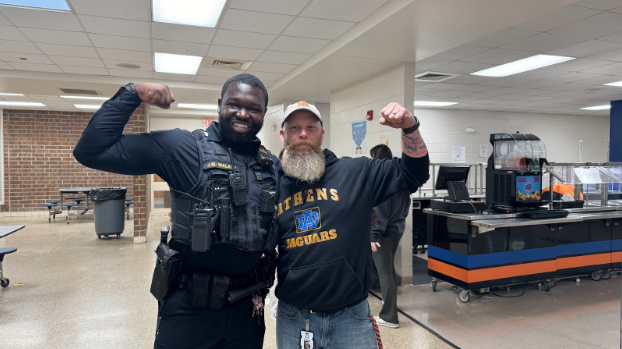For anyone, dealing with diabetes can be demanding. Gwen Peterson, freshman, proves that living with diabetes doesn’t have to be an obstacle to your capabilities. According to Juvenile Diabetes Research Foundation (JDRF), a nonprofit organization for diabetes, 1.6 million Americans are living with type 1 diabetes. Peterson is one of many who must deal with numerous responsibilities daily.
Type 1 diabetes affects a person’s life in many aspects. People with diabetes have to monitor their blood sugar closely, as it changes constantly. According to the University of Michigan Health, low blood sugar can cause fatigue, drowsiness, or even cause a person to lose consciousness. Similarly, high blood sugar can also create many health problems. Both can be life-threatening, so dealing with diabetes on a daily basis can be daunting.
“When my sugar is low I can feel shaky, unfocused, energetic, and even feverish,” said Peterson, “For high blood sugar, I get tired and my emotions can be drained.”
To prevent this from occurring, Peterson must track her blood sugar levels constantly. Peterson has to give herself four shots a day of insulin to keep them in check.
“I have a monitor in my stomach that connects to my phone, so I have to have my phone all the time,” said Peterson.
The technology that a diabetic uses can play a major role in how easily blood sugar levels are monitored. Some technologies can make dealing with diabetes much easier.
“It was much harder to manage when I was younger! I now have a sensor (Dexcom G6) that reads my blood sugar every 5 minutes. It is sent to my phone and smartwatch. This is extremely helpful,” said Jennifer Hinnant, math teacher, and type 1 diabetic.
These newer technologies can help diabetics in many aspects, and helped Hinnant through her pregnancy.
“It was key to my pregnancy last year as well. It made it much easier to control my sugars and make sure my baby and I both were healthy!” said Hinnant.
Diabetes can also influence a person’s exercise. Peterson lives a very active lifestyle and is on the Junior Varsity A Volleyball team at Athens. However, physical activity can alter her blood sugar so participating can often be difficult.
“A lot of times when I’m exercising, it makes my blood sugar go low, so I have to pause sometimes during games or even during practices,” said Peterson.
Like Peterson, diabetics have their good and bad days. Sometimes sitting out on activities is necessary to maintain the right blood sugar levels.
“Being diabetic has its ups and downs! Some days it seems easier to manage, but others I feel like I cannot do anything right. There is always a constant battle with low and high blood sugars.” said Hinnant, “This may mean that I can’t do certain things or participate in activities because of it.”
Along with exercise and blood sugar levels, Peterson must also monitor what she eats. According to the National Institute of Diabetes and Digestive and Kidney Disease, diabetics must limit their added sugar, starches, sodium, and foods high in saturated and trans fat.
“I can’t have things highly concentrated in carbs like pasta, cake, potatoes, and other starchy foods,” Peterson said, “I can’t have pizza at all, or cereal because they are bad for my blood sugar.”
Despite the obstacles she faces, diabetes has allowed Peterson to be more conscious of herself in ways she never would have been without it. Peterson said she’s a lot more aware of her body now more than ever before, not just her blood sugar but also her overall health. Peterson stresses the importance of diabetes education, and the improvements that can be made to help diabetics.
“I myself knew almost nothing about diabetes before I was diagnosed and I have found the case to be the same for most people I know,” Peterson said, “If people knew the basics of diabetes like they know how to do CPR, then less people would get type 2 diabetes, and type 1 diabetics would be safer wherever they went.”
Peterson will continue doing the things she loves as she strives for a career in genetic engineering, and continues to succeed in volleyball and student council. She knows that no matter what she wants to achieve, her diabetes won’t hold her back.







